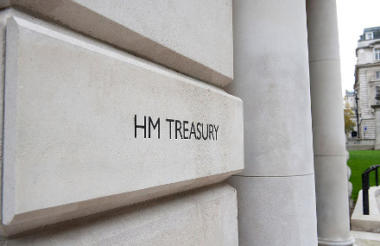The government has rejected calls to delay the introduction of the new IR35 rules, but has said it will take a “light touch” approach to penalties for a year.
The IR35 rules are designed to ensure that an individual employed through an intermediary, which will often be a personal service company, is not a direct employee in all but name. This is so that the right amount of tax and National Insurance Contributions are paid and that such an arrangement is not being used just to reduce tax liabilities.
The government said that non-compliance with the rules is expected to “cost the Exchequer over £1.3bn a year by 2023-24 if not addressed”.
In an attempt to crack down on misuse, from 6 April 2020 employers, including charities, will be responsible for deeming whether an individual is a legitimate contractor or if they should be on payroll.
In January 2020, the government opened a review to identify any problems with implementation, which included engaging with those affected. HM Treasury has now published the results of this review.
One opinion expressed by these stakeholders was that the new rules should be delayed or halted. “The government believes it is right to address the fundamental unfairness of the non-compliance with the existing rules,” the HM Treasury report says, so the new IR35 regime will still come into effect as planned.
However, HM Treasury has promised that during the first year of the new regime it will “take a light touch approach to penalties.” This means that it will not issue fines unless “there is evidence of deliberate non-compliance”.
It also reiterated its previous position that a change in circumstances as a result of the new rules will not be used to open historical enquiries, “unless there is reason to suspect fraud or criminal behaviour”.
In response to feedback, it also confirmed that the new rules will only apply to services carried out from 6 April 2020 onwards.
Concerns were also raised during the review process about situations where the contractor is based overseas. As a result, the government is to amend the legislation “to exclude wholly overseas organisations with no UK presence from having to consider the off-payroll working rules”.
In the first year HM Treasury will also “continue to operate a dedicated project team to deliver education on the off-payroll working rules and support customers applying them”.
“The government will continue to listen to stakeholders, and monitor and evaluate the operation of the rules,” the report says. “HMRC will commission external research into the impacts of the reform six months after implementation, including on how status determinations are being made.”
The new IR35 rules apply to large organisations that meet two of three thresholds over two accounting periods. The thresholds are an annual turnover of £10.2m or more, a balance sheet total of more than £5.1m and having over 50 employees.
The new approach is already in place in the public sector, but is being expanded to the private and third sectors.
Related articles












